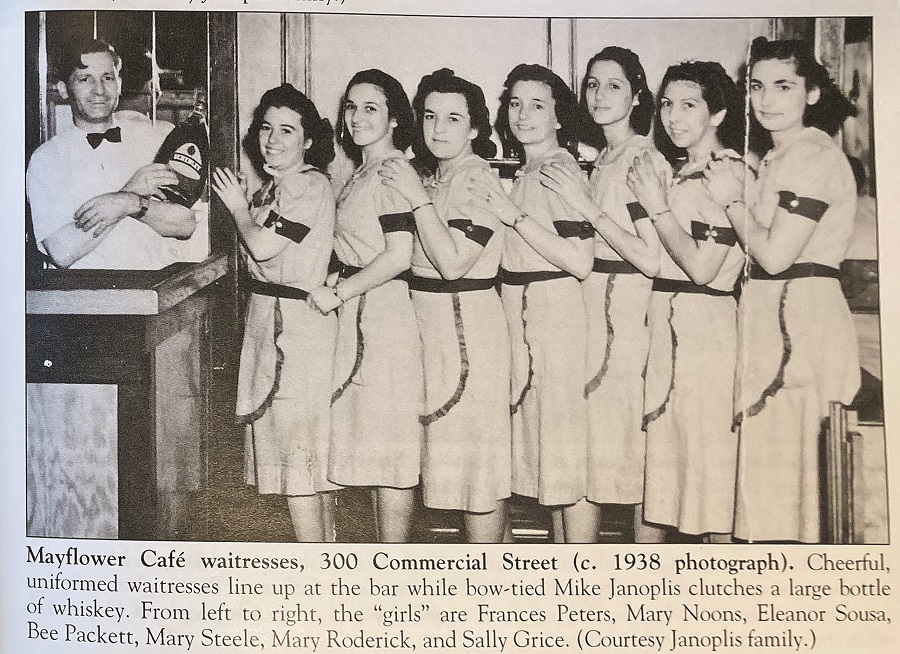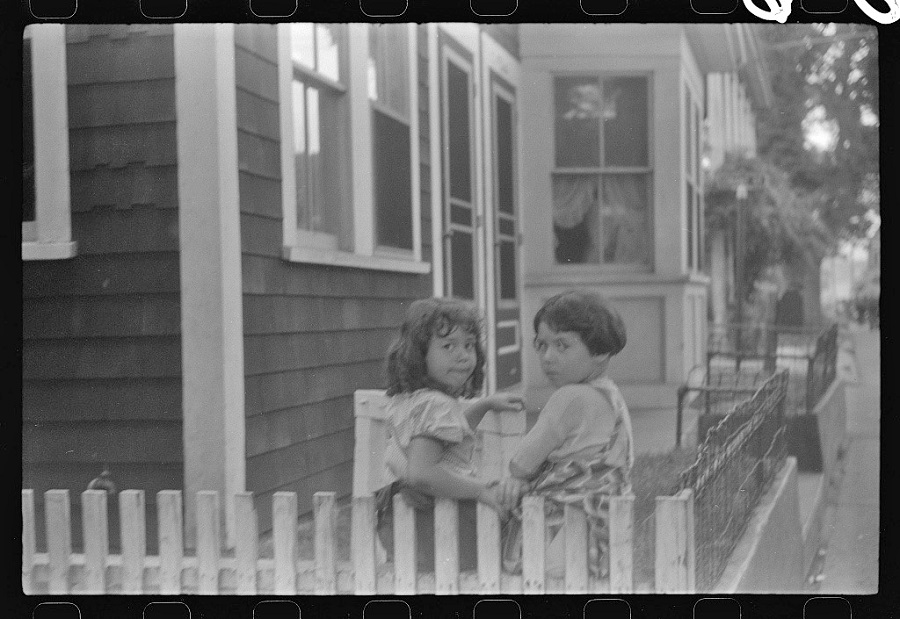PROVINCETOWN — On the eve of Portuguese Festival weekend, this year again severely curtailed because of the pandemic, a question that is central to Provincetown’s identity as a welcoming place for all must be asked: How is it that a culture with religious beliefs as strong as the Portuguese Catholics’ also embraced gay people long before most everyone else in the United States did?
Before the town was known as a gay resort, it was filled with Portuguese immigrants whose men went to sea and whose women did whatever they could to make ends meet at home. The Portuguese were the ones who started welcoming everyone.
In Cape Queer? A Case Study of Provincetown, Mass., Karen Christel Krahulik, an associate dean at Brown University, wrote that Provincetown’s gayness didn’t develop in bars or nightclubs but in the households of Portuguese women who took in gay boarders.

Helen Valentine, 91, who ran a guest house for 70 years at 99 Commercial St., said it was common to rent out a spare room to artists or “bohemians” to make extra money during and after the Great Depression. Her mother-in-law began doing it in 1941, the year her husband was lost at sea, when the fishing vessel Mary E. O’Hara went down in Boston Harbor.
If the boarders were gay people, or artists, Valentine said, it didn’t really matter, so long as they were quiet and respectful, which at least the first generation of them were, she said. Provincetown by the 1940s was well known as a place for artists. They came from the cities to take classes at the art schools that flourished here. Gay men and lesbians moved in that crowd.
Most Portuguese families were large, with six or more children, Valentine said, and they came from lives of extreme poverty, many from the Azores, especially the island of São Miguel. They inhabited the West End of town, while the Yankees lived in the East End.
The poverty, and the discrimination they faced because of their dark complexions, may have given them empathy for outsiders.
“I can remember growing up when the East End had the money and the West End had fishermen and poor people,” said Cathy Henrique, a Provincetown native. “The Portuguese accepted people — it’s just the Portuguese culture. That’s who they are. The Portuguese were poor, poor, poor, and they themselves wanted to be accepted.”
Krahulik describes a mingling of economic motivation and cultural acceptance: “Portuguese households in Provincetown functioned as matriarchal, income-pooling breeding pens for economically driven, cross-cultural alliances.”
When the Portuguese children moved out of their homes built for large families, the spare rooms became income producers. Sometimes the children hadn’t moved out yet.
Paul Mendes, 75, remembers being sent to sleep under the dining room table when money could be made leasing out his bedroom. His mother, Leona Mendes, began renting rooms in the family home at 6 Johnson St. in 1946. It was a guest house for the next 55 years.
The rooms were very simple, and sometimes the guests shared bathrooms with the families themselves. Mendes, Valentine, and many others like them grew up understanding what gay people were like in the real world.
Mendes said when he joined the U.S. Marines and served in the Vietnam War, he was shocked by the views held by his fellow Marines of gay men as pedophiles and lesbians as all “looking like football players.”
Mendes agreed with Henrique that the discrimination they faced as immigrants gave the Portuguese a kinder view towards minority groups.

When the Portuguese arrived in America they were called “white n****rs,” Mendes said. “I remember my uncle showed my brother a burnt cross and said that’s what the Protestants think of us.”
Beverly Ferreira, a member of the Portuguese Festival planning committee, said the Portuguese are naturally hospitable. “They just like people and like to feed them,” she said. She saw it when she visited Portugal, and she’s observed it in her own family, particularly in her Aunt Ruth.
Ruth O’Donnell, who worked at Ciro & Sal’s until she was in her 80s, would often say, “Don’t spit up in the air.” That meant everyone is different and it’s unwise to judge, Ferreira said.
O’Donnell welcomed the hippies she worked with at Ciro & Sal’s. “You would find those young girls at Aunt Ruth’s table,” Ferreira said.
Though most of the annual Portuguese Festival events have been canceled this year, the Blessing of the Fleet will take place this Sunday, June 27, following 10:30 a.m. Mass at St. Peter the Apostle Church. There will be no procession to the pier. The festival booth in Portuguese Square on Ryder Street will be open Thursday through Sunday. “Vessels will be blessed in a ceremony that continues the tradition in a quiet and respectful way,” according to the festival website.
VICTORY AT SEA
Derek Macara Is Portuguese Festival Artist
 Every year, the Provincetown Portuguese Festival picks a featured artist to commemorate a fishing vessel. This year, Derek Macara’s painting Victory II is the featured image on the festival T-shirts and booklet. The painting depicts his family’s boat that sank in 1984 near Wellfleet when its dragging net caught on the bottom and pulled it down. Macara made the painting specifically for the festival, using old photographs for reference.
Every year, the Provincetown Portuguese Festival picks a featured artist to commemorate a fishing vessel. This year, Derek Macara’s painting Victory II is the featured image on the festival T-shirts and booklet. The painting depicts his family’s boat that sank in 1984 near Wellfleet when its dragging net caught on the bottom and pulled it down. Macara made the painting specifically for the festival, using old photographs for reference.
Macara grew up in Provincetown, where he was influenced by the Hawthorne School and the fishing industry. He’s painted throughout his life, moving from abstract to realist painting over the past five years. He has also participated in the Blessing of the Fleet year after year, “an event where family and friends get together, go out on boats, eat a lot of food, and drink a lot,” he says. “Originally, it was a religious thing, where all the commercial fishing boats get blessed, for good fortune for the summer, but I think it has turned into more of a party, which is also fine.”
Victory II will be auctioned by telephone, with bidding closing on Sunday, June 27. The winner will be notified by telephone on Monday, June 28. This summer, Macara’s paintings can be found in Provincetown at the Treadwell Gallery, Botanica, the Red Inn, and the Lobster Pot. —Caroline Carney



